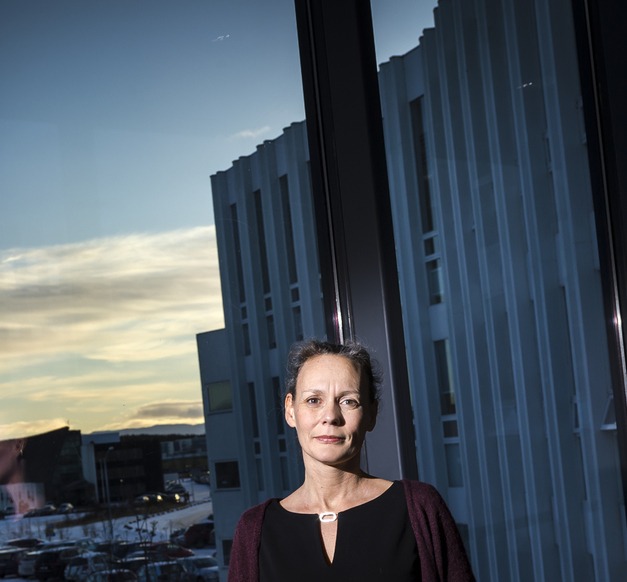Brynhildur Davíðsdóttir, professor in environment and natural resources
Blue growth is a term that has risen to prominence in recent years, referring, as the name suggests, to the blue ocean and the resources it has to offer. This term is the focus of an extensive international research project involving representatives of the University of Iceland.
"Blue growth is about how we should raise the value of marine resources, whether through fish farming, marine fishing or sailing, but in an environmentally friendly way," says Brynhildur Davíðsdóttir, professor of environment and natural resources and one participant in the project which is entitled, strangely enough, GreenMAR.
"We want to improve our awareness of how we can raise the value of marine resources whilst using them in a sustainable way. We are investigating this in light of the changes occurring in marine ecosystems due to climate change, i.e. in light of global warming and the acidification of the oceans," says Brynhildur and points out a pertinent example for Icelanders. "Due to changes in sea temperature, mackerel began to habitually enter Icelandic waters a few years ago to the enormous economic benefit of the Icelandic fishing industry."
Brynhildur Davíðsdóttir
"Recent research findings from our colleagues at Columbia University show, for example, that the productivity of fish farming will probably increase significantly due to rising ocean temperatures."

As well as Icelandic researchers, Swedish and Norwegian universities and research institutes are also involved with the GreenMAR project, as well as academics and doctoral students from the Netherlands, Russia, the USA and Austria. The different research teams have different focuses and are investigating, for example, the impact of fishing on the development of cod, the social and economic impact of marine fishing and opportunities for fish farming as the climate changes. "Recent research findings from our colleagues at Columbia University show, for example, that the productivity of fish farming will probably increase significantly due to rising ocean temperatures," points out Brynhildur. Within the University of Iceland, both research staff and doctoral students are involved with the project, focusing on the impact of climate change on the movement of fish here in Iceland. "The doctoral students are investigating the impact of climate change on the movement of pelagic fish and how stocks should be managed through domestic and international contracts. The students are also looking at the ecological footprint of marine fishing, possible ways to reduce greenhouse gas emissions from marine fishing and whether it is possible to increase the value of products within the quota system, both for the industry itself and Icelandic society as a whole," says Brynhildur, underlining the importance of taking part in large international projects such as GreenMAR for the doctoral students' future networks.
The project has a strong social significance according to Brynhildur. "In an international context, blue and green growth, i.e. how we can increase the value of our biosystems on land and in the ocean whilst not depleting them, are the foundation of continuing global prosperity. From an Icelandic perspective, for example, we are looking at how we use the enormous potential of increased value of marine fishing for society as a whole, but also how we as a nation must somehow change our behaviour towards marine resources in light of climate change."


